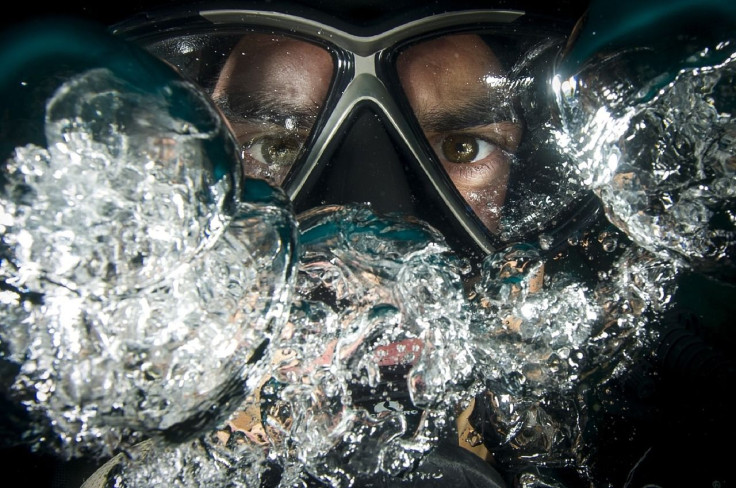Scuba Diving? The Science-Backed Reason To See The Dentist Before Going Underwater

Scuba enthusiasts should think about going to the dentist if they don’t want to be diving for their own pearls: A recent study in the British Dental Journal suggests tooth pain and dental issues are a common problems among scuba divers.
More than 40 percent of a small group of divers surveyed online had “experienced dental problems during a dive.” A squeezing sensation known as barodontalgia was the most common occurrence. Molar teeth were most often the source of pain and diving instructors, who spend a lot of time in shallow water with fluctuating pressure, were most likely to have dental symptoms.
Read: Cavemen Cavities Were Awful
“It would be meaningful to ensure that dental decay and damaged restorations are addressed before a dive,” the study warns, “and that the mouthpiece design be evaluated in case of complaints of ... discomfort during a dive.”
The University of Buffalo said in a statement that pain may come from teeth as well as the jaw or gums, perhaps due to the water’s fluctuating pressure and constant jaw clenching to use the scuba mouthpiece. People may also experience loosened crowns and broken fillings.
Lead author and Buffalo dental student Vinisha Ranna, who also worked with researchers from University of Rochester School of Medicine and Dentistry, said in the university statement that medical checks that come before a person is certified to dive don’t include dental health. But “considering the air supply regulator is held in the mouth, any disorder in the oral cavity can potentially increase the diver’s risk of injury.” That would be because of the mouthpiece’s position but also because of “the dry air and awkward position of the jaw while clenching down on the regulator.”
Herself a certified diver, Ranna was inspired to conduct the survey after experiencing tooth discomfort during a dive. Her next step is to conduct a survey with a larger sample size.
“An unhealthy tooth underwater would be much more obvious than on the surface,” she said. “One hundred feet underwater is the last place you want to be with a fractured tooth.”
Source: Ranna V, Malmstrom H, Yunker M, Feng C and Gajendra S. Prevalence of dental problems in recreational SCUBA divers: a pilot survey. British Dental Journal. 2016.
See also:
Published by Medicaldaily.com



























